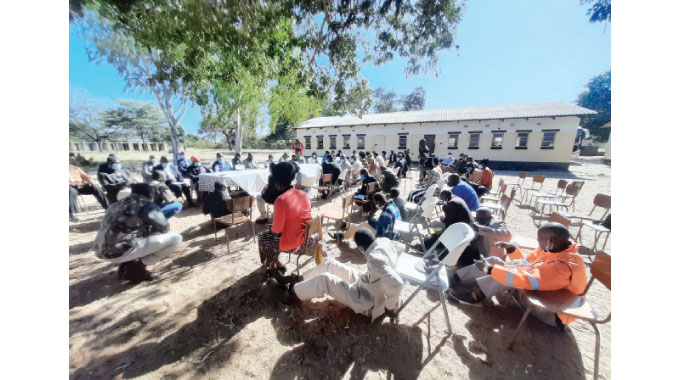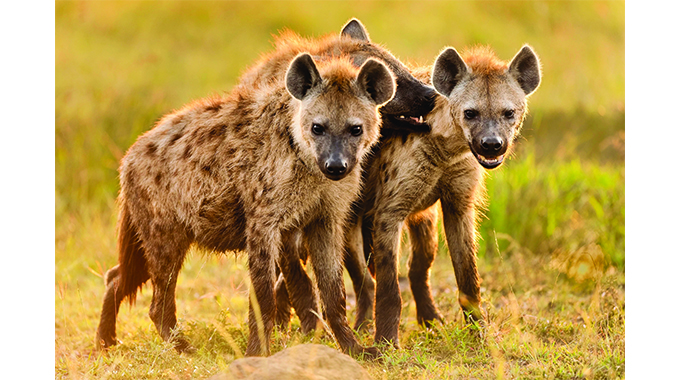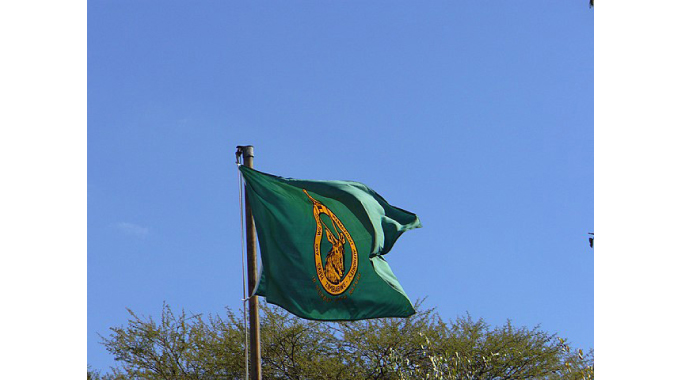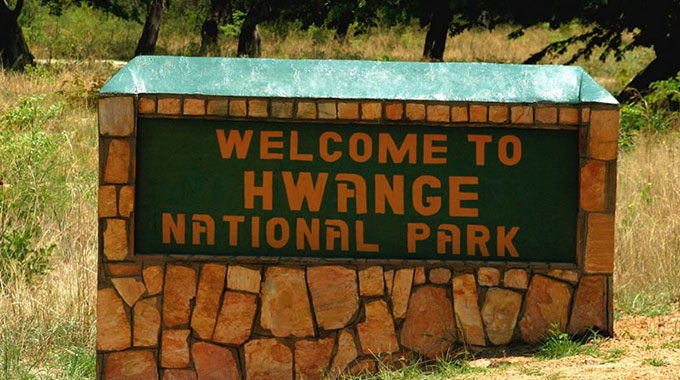No compensation for wildlife conflict victims

Leonard Ncube in Hwange
THE old adage “there is an elephant in the room” may appear a simple idiom but to villagers in Mabale, Hwange District in Matabeleland North, it refers to the reality of elephants literally entering their huts in search of food.

Elephants destroying crops
The elephants, lions and hyenas invade the village at night in search of food and water and in the process kill livestock and destroy crops. In some cases some people have either been killed or injured.
The Parliament Thematic Committee on Peace and Security has been in Hwange since Monday to meet victims of human-wildlife conflict and was welcomed by sad tales as villagers narrated how elephants, lions and hyenas regularly visit them at night thereby putting their lives and that of their livestock at risk.
Some have been killed, others injured while many others have lost livestock or had their crops destroyed.
Mr Lift Sibanda of Dopota area told how elephants invade homesteads in search of food.
He said hyenas, lions and elephants usually invade the community around 5pm and leave around 7am the next morning.
Mr Sibanda said he lost all his harvest to an elephant that destroyed his kitchen hut where he had stored his grain.
“We have suffered for about 20 years as a result of these wild animals coming from the national park.
We spend nights in the fields guarding crops and after harvest we can’t put our grain engalanini (traditional grain dryers) because elephants will eat everything.
We have resorted to storing our harvest in huts but the elephants are destroying the huts in search of the grain,” said Mr Sibanda.
In Victoria Falls elephants have destroyed tuckshops and fished out groceries.
People do not move freely at night fearing attacks.

Hyenas
Last year Mr Doubt Dube, a villager from Dopota was killed by hyenas and neighbours picked up chunks of meat and other body parts in the bush about 2km away from the scene of the attack.
Mr Hanganani Dube from neighbouring Mabale Village suffered disability after being attacked by an elephant while herding cattle last year.
These are few examples of villagers that have been attacked by animals.
Mr Sibanda said the animals are no longer scared of people.
“It is difficult to chase them away.
People used to beat drums and tins to scare them away but they are no longer frightened by such noise.
When they arrive we lock ourselves indoors leaving our livestock at the mercy of these wild animals,” he said.
Mr Sibanda said people were not being compensated for the losses they were suffering hence they were calling on the Government to ensure they benefit from proceeds of wildlife.
Another villager Mr Ndaba Ben Alexander from Masikili Village said he lost 32 goats to lions and one of the lions tried to enter his bedroom hut where he had penned the remaining few goats.
“We never knew that elephants and lions can live with people.
Many years back they never used to come to communities which is why I think we need to interrogate this issue,” said Mr Alexander.
He blamed the human-wildlife conflict on “over-development” in the Hwange National Park saying private developers had disturbed the animal habitat.
Mr Alexander implored authorities to compel safari operators to compensate victims by ploughing back resources to the communities.
He said his family, just like other villagers were living in fear as lions, hyenas and elephants visit them almost everyday.
Sometimes people wake up and see spoors around the yard.
Many have resorted to penning goats in the yard or in huts.
Chief Nelukoba of Mabale also lost six cows and 13 goats to lions recently.

Zimbabwe Parks and Wildlife Management Authority (Zimparks)
The Zimbabwe Parks and Wildlife Management Authority (ZimParks) organised the tour which started on Monday for the Thematic Committee to appreciate challenges faced by communities in Binga and Hwange as a result of interaction with wild animals.
Zimparks director of operations Mr Arthur Musakwa dismissed claims that wild animals were straying into communities because of human developments in Hwange National Park.

Hwange National Park
He said Zimbabwe’s tourism is wildlife-based hence any projects in and around the game parks are sustainable to environment and wildlife.
“The issue of overpopulation of elephants should be taken seriously and is not unique to us alone but across the Kavango-Zambezi Transfrontier Conservation Area.
There is need for all affected countries to come up with common strategies to address this problem because animals migrate,” he said.
Villagers have proposed the erection of a boundary fence separating game parks from communities, creating a welfare fund to compensate victims and also ensuring communities affected by wildlife directly benefit from wildlife proceeds.
The Thematic Committee acting chairperson Senator Themba Mathuthu said his committee will present a report on its findings to Parliament. –@ncubeleon












Comments